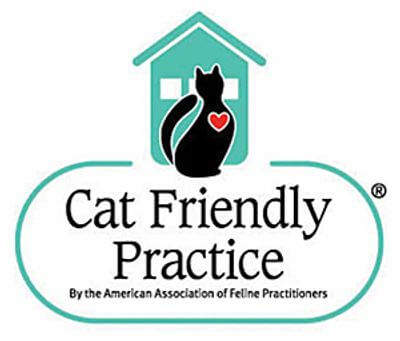"Parvo" is the last word you want to hear as a dog owner. Short for parvovirus, parvo is a devastating and highly contagious virus that can cause potentially deadly illness in even the healthiest of pups in a matter of days. The good news is that this disease is preventable. It's also relatively treatable when detected early. The bad news is that this frightening virus is becoming increasingly common and is putting more dogs at risk than ever before.
As veterinarians, few things break our hearts more than seeing previously healthy and happy puppies lose their lives to this horrifying illness. That's why we are sharing some helpful information about the increase in parvovirus and what you need to know to protect your four-legged family member. You may have even heard about the mysterious outbreak of illness in Northern Michigan in which 30 dogs died. The symptoms were initially called "parvo-like" when it was, indeed, parvovirus.
Before we dive in, please note: If you have any reason to suspect that your dog could have parvo, contact us immediately! Early diagnosis and treatment provide the best chance of saving your precious pup's life.
What Is Parvo?
Parvovirus is a potentially deadly gastrointestinal (GI) illness that affects puppies and young dogs. It is highly contagious and spreads via direct contact with infected dogs or their feces. The virus can live in soil for up to a year and survive at room temperatures inside your home for a month or longer. Parvo can even live on clothing, skin, leashes, collars, etc. It also resists most cleaners, except for bleach.
Infected dogs often start shedding the virus before showing symptoms (four to five days after exposure) and continue shedding it for up to 10 days after recovering from the illness. Because parvovirus is so contagious, keeping an infected puppy in quarantine until they've had enough time to fully recover and stop shedding the virus is crucial.
Parvo symptoms include:
- Loss of appetite
- Lethargy
- Abdominal bloating and pain
- Repeated vomiting
- Severe, often bloody diarrhea
- Fever or low body temperature
Persistent diarrhea and vomiting are among the most concerning symptoms. They can lead to rapid dehydration and damage the immune system and intestines when not addressed immediately. Without veterinary care, many dogs do not survive parvovirus.
Why Are Parvovirus Cases Increasing?
Parvovirus cases and hospitalizations have been on the rise for the last few years. According to some veterinarians, the pandemic could have contributed to the uptick in cases. During the early months, pet adoptions skyrocketed as people sought animals for companionship while stuck at home during lockdowns. And with more dogs leaving shelters and spending time exploring outdoor environments with their new families, the risk of environmental exposure increased.
Furthermore, as the world focused on slowing the spread, many practices suspended wellness care services, including vaccinations. New puppies were still being born, though. They were simply unable to obtain the required initial vaccinations, including the parvo vaccine. Financial hardships caused by the pandemic have also prevented many pet owners from keeping up with their companions' vaccine protocol.
While life has, in many ways, gone back to normal since the early days of the pandemic, parvo cases remain on the rise in many areas. For this reason, taking steps to protect your canine companion is crucial.
Why Puppies Are Susceptible to Parvo
Most parvo cases affect puppies between six weeks and six months of age. As long as the mother has had all of her shots, puppies still have some of their mother's antibodies until they are about six weeks old. After six weeks, they are more likely to get sick, which is why they are more likely to get parvo during this time.
We administer puppies' first vaccines in a series that typically begins at six to eight weeks of age. Shots are then readministered in a series until they're 16 weeks old. Dogs are not considered fully vaccinated and protected against parvovirus (and other preventable illnesses) until they have received all doses of their puppy vaccines. Keeping your pup up-to-date on their vaccinations as they age ensures lifelong protection.
We see parvo most commonly in puppies purchased through online sources such as Craig's List. This is likely because the mother dog was not vaccinated, and the cleanliness of the environment is less than ideal. When purchasing from a breeder, it is vital to visit the facility/home and be mindful of how the dogs are cared for and the hygiene of the dog's housing. Many online sources will also be untruthful about the puppy's age, selling it before it is ready to be separated from its mother. The puppy then does not receive sufficient immunity from the mother's milk. Be sure to have your puppy examined by your veterinarian within 24 hours of purchase and ask for all vaccine and deworming records from the breeder.
How to Protect Your Dog from Parvo
Having your puppy vaccinated and keeping up with booster shots throughout their life is the best and most effective way to protect them from parvo. Once fully vaccinated, dogs are unlikely to fall ill if they encounter the virus. However, to maintain a high level of protection, you must bring your dog in for a booster shot annually to every three years, depending on lifestyle.
If you have a new puppy or an older dog with an unknown vaccination history, use extreme caution until they are fully vaccinated against parvo. Avoid places frequented regularly by other pets. This includes dog parks, boarding and daycare facilities, pet stores, etc. Keep them away from unvaccinated dogs and dogs with unknown vaccine histories, too. Because parvovirus is such a devastating illness, we strongly recommend erring on the side of caution.
Closing Thoughts
Parvo is a horrible disease. Infected pets experience several uncomfortable and painful symptoms, and infection often leads to death in pups who do not receive immediate veterinary care. To stop the spread of parvo and help your dog live a long, healthy life, it's essential to know how it spreads, how to spot the symptoms, and how to protect your pet. Whether your puppy needs to start their vaccines, your adult dog is due for a parvo booster, or you think your pet may be sick, we are here for you. Please contact us immediately to set up an appointment and learn more about how to protect your beloved pet from this terrible illness.



